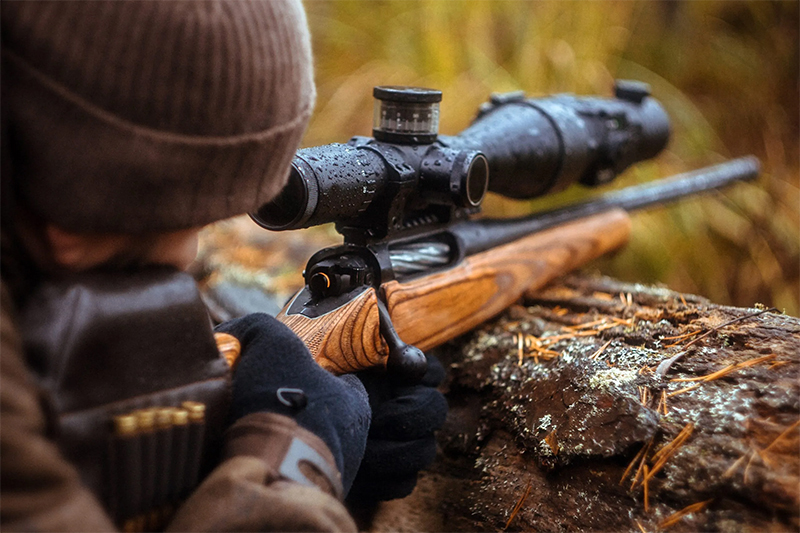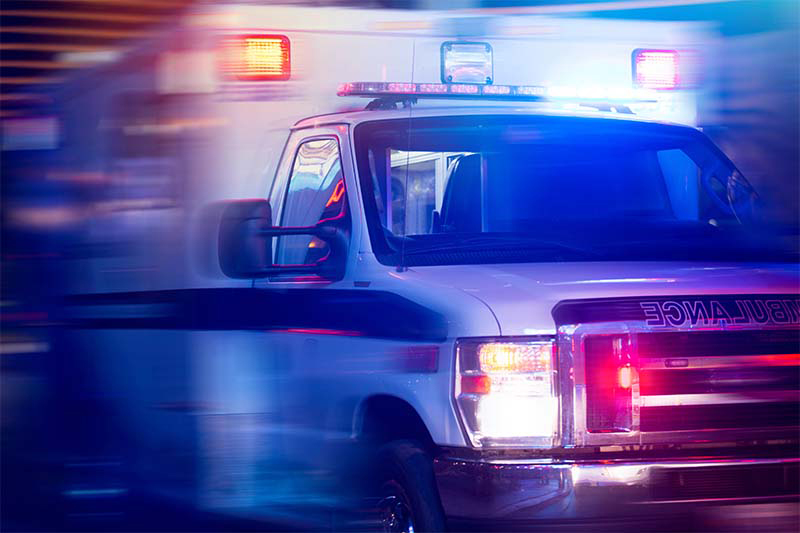Top Rated Hunting Accident attorneys in just one call
America's Top rated Hunting Accident Lawyer
Find out why we are one of the best hunting accident law firms in America
What is a Hunting Accident?
A hunting accident refers to an incident that occurs during hunting activities, resulting in injury, property damage, or even death.
Around 1,000 hunting accident injuries are reported every year in the United States, leading to an average of 100 deaths. [1]

Common Causes of Hunting Accidents
Hunting, an age-old tradition and outdoor pursuit enjoyed by many, carries inherent risks that can lead to accidents and injuries if proper precautions are not taken. Here are some common causes of hunting accidents:
- Alcohol or Substance Use
- Careless Behavior
- Failure to Follow Safety Rules
- Failure to Use Blaze Orange
- Fatigue
- Firearm Mishandling
- Improper Firearm Maintenance
- Inadequate Hunter Education
- Lack of Communication
- Mistaken Target
- Falls
- Weather-Related Factors
Types of Injuries Associated with Hunting Accidents
Hunting accidents can result in a wide range of injuries, varying in severity and type.
- Gunshot Wounds: Gunshot wounds are one of the most common types of hunting accidents. Gunshot injuries can vary in severity, affecting various body parts such as limbs, torso, or head.
- Lacerations: Accidental contact with sharp objects, like knives or branches, can cause deep cuts and lacerations, potentially leading to significant blood loss.
- Fractures and Dislocations: Falls or other accidents can result in broken bones or joint dislocations, which require medical attention and sometimes surgical intervention.
- Puncture Wounds: Puncture wounds can occur when hunters step on hidden objects or when objects penetrate the skin, potentially leading to infection.
- Internal Injuries: Severe trauma from falls or other accidents can result in internal injuries to organs like the liver, spleen, or kidneys.
- Abrasions and Contusions: Scrapes and bruises can occur when hunters come into contact with rough surfaces or objects.
The most frequent severe injuries involve falls from tree stands, resulting in broken bones or head injuries. [2]

Compensation Available for Hunting Accidents
If you’ve been involved in a hunting accident, you may be entitled to various forms of compensation depending on the circumstances of the incident.
- Medical Expenses: Compensation for past and future medical bills related to injuries sustained in the hunting accident. This may include hospitalization, surgery, rehabilitation, medication, therapy, and other medical costs.
- Lost Income: Compensation for any wages or income lost due to the hunting accident, including missed work time during recovery and potential future loss of earning capacity if the injuries result in long-term disability or inability to work.
- Pain and Suffering: Compensation for physical pain, emotional distress, and mental anguish caused by the hunting accident and resulting injuries. This may also include compensation for loss of enjoyment of life and psychological trauma.
- Disability and Impairment: Compensation for permanent disabilities, impairments, or disfigurement resulting from the hunting accident. This can include compensation for reduced quality of life, loss of limb function, or other long-term physical limitations.
- Property Damage: Compensation for damage to personal property, such as hunting equipment, vehicles, or other belongings, that occurred as a result of the accident.
- Wrongful Death Damages: In cases where a hunting accident results in the death of a loved one, surviving family members may be entitled to compensation for funeral and burial expenses, loss of financial support, loss of companionship, and other related damages.
- Punitive Damages: In cases involving egregious negligence, recklessness, or intentional misconduct, punitive damages may be awarded to punish the responsible party and deter similar behavior in the future.
- Legal Fees and Costs: In successful hunting accident cases, the responsible party may be required to cover the injured party’s legal fees and litigation costs associated with pursuing compensation.
Statute of Limitations
The Statute of Limitations for filing a lawsuit related to a hunting accident can vary depending on the jurisdiction where the incident occurred. In many states, the Statute of Limitations for personal injury claims, such as those arising from hunting accidents, is generally two years from the date of the injury.
Consult with our qualified attorneys who are familiar with the specific laws and regulations in the jurisdiction where the hunting accident occurred.
There may be exceptions or nuances to the Statute of Limitations that could affect the timeframe for filing a lawsuit. Factors such as the type of claim being pursued and the age of the injured party at the time of the accident may impact the Statute of Limitations.
Failing to file a lawsuit within the applicable timeframe may result in the loss of the right to seek compensation for injuries and damages sustained in the hunting accident.

Who Can be Held Accountable for a Hunting Accident?
In the event of a hunting accident, several parties may potentially be held accountable, depending on the circumstances surrounding the incident.
The following are common parties that may be liable for a hunting accident:
- The Hunter: The individual who directly caused the accident may be held responsible if their actions, such as mishandling a firearm or violating hunting regulations, contributed to the incident.
- Landowner: If the hunting accident occurs on private property, the landowner may bear liability if they fail to maintain a safe environment, provide adequate warnings, or permit unsafe hunting practices on their land.
- Hunting Guide or Outfitter: If a hunting guide or outfitter was involved in organizing or supervising the hunt and their negligence contributed to the accident, they may be held accountable for any resulting injuries or damages.
- Firearm Manufacturer or Distributor: In cases where a defective firearm or hunting equipment malfunctions and causes an accident, the manufacturer or distributor of the faulty product may be held liable under product liability laws.
- Government Entity: In accidents occurring on public lands or during regulated hunts, government agencies responsible for managing wildlife and enforcing hunting regulations may be held accountable if their negligence or inadequate oversight contributed to the accident.
Hunting Accident Lawyer
When it comes to hunting accidents, seeking legal representation from a skilled hunting accident lawyer is essential. At Goldberg & Loren, our team of experienced attorneys understands the intricate complexities of hunting accident cases and is highly dedicated to fighting for the rights of hunting injury victims.
With our extensive experience in handling personal injury claims, our lawyers are well-equipped to navigate through the legal complexities surrounding these incidents. We understand the various laws and regulations that may come into play, such as those governing firearm safety, property owner responsibility, and hunting season regulations.

By hiring our personal injury lawyers at Goldberg & Loren, you can have peace of mind knowing that your personal injury lawsuit is in capable hands. Our team will provide you with the necessary legal guidance, support, and representation needed to hold responsible parties accountable for their actions. Contact Goldberg & Loren today for a free consultation.
FAQs
The legal consequences of a hunting accident can vary depending on the severity of the incident, applicable laws and regulations, and the extent of injuries or damages sustained. In some cases, hunters may face criminal charges for violations of hunting laws, such as illegal hunting practices or hunting-related injuries to others. Individuals injured in hunting accidents may pursue civil lawsuits to seek compensation for their injuries and losses.
If you're involved in a hunting accident, prioritize your safety and the safety of others involved. Seek medical attention for any injuries immediately and report the accident to local authorities. Document the details of the incident, including the location, time, and circumstances surrounding the accident. Cooperate with law enforcement officials and consult with a qualified attorney to understand your legal rights and options for seeking compensation for your injuries and losses.
If you witness a hunting accident, your first priority should be to ensure your safety and the safety of others nearby. Call emergency services immediately to report the accident and provide assistance to the injured individual if it is safe to do so. Gather information about the incident, including the location, description of what happened, and contact information for any witnesses. Cooperate with law enforcement officials and provide any relevant information to assist in their investigation of the accident.
Sources:
[1] G. (2023, September 5). Hunting Accident Statistics And Trends in 2023 • GITNUX. GITNUX. https://blog.gitnux.com/hunting-accident-statistics/
[2] VanDerLaan, J. (2023, August 9). Hunting Accident Statistics: Injuries, Fatalities, and Causes. Deer Hunting Guide. https://www.deerhuntingguide.net/hunting-accident-statistics.html

If you or someone you care about was victim of a hunting accident, you might be eligible for compensation for your injuries. Get in touch to see if you have a case.
George Goldberg
Senior Partner
Have Questions About Your Case? Call Us Today: